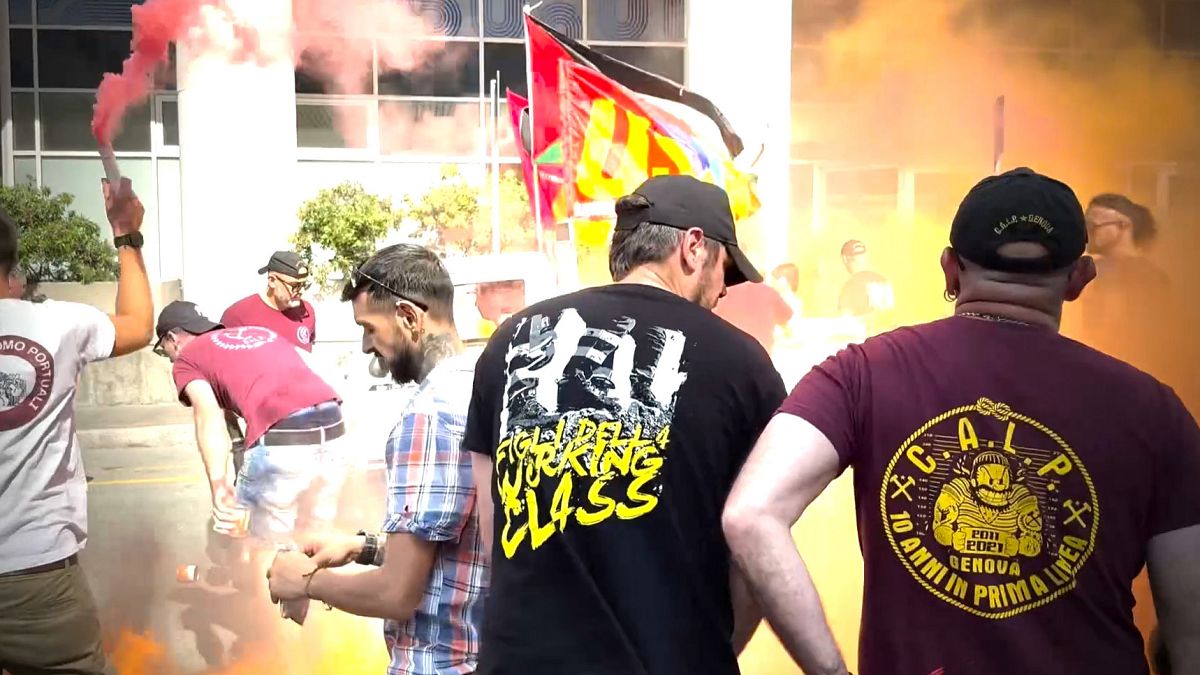

Across Europe, a movement advocating for peace and justice is gently gaining traction, as various groups and communities come together to express their concerns and hopes for a more harmonious future. Recent activities in France, Italy, and Greece illustrate how these peaceful endeavours are interconnected by a shared commitment to mitigating conflict and fostering understanding.
In recent months, port workers in Europe have been taking significant steps to express their solidarity with those affected by ongoing conflicts. In June, French dockworkers took a notable stand by blocking a shipment that contained arms components destined for Israel. Their actions were underscored by a broader dissent against the backdrop of Israel’s military actions in Gaza, which are officially framed as self-defense efforts by Israel. This initiative did not happen in isolation; it has inspired support from similar-minded individuals and groups throughout the continent.
The Italian port of Genoa, with its longstanding tradition of opposing arms exports, joined in this peaceful protest. Dockworkers there echoed the sentiments of their French counterparts, advocating for a more peaceful approach to international relations that eschews the further deployment of weapons. Their coordinated efforts reflect a broader desire to engage in constructive dialogue and find alternative paths that do not involve exacerbating tensions.
Parallel to the movements in France and Italy, a peaceful assembly organized by a pro-Palestine group unfolded on the island of Crete, Greece. The arrival of an Israeli cruise ship was met with demonstrations, which, despite minor scuffles with riot police, remained largely focused on peaceful expressions of protest. Such gatherings underscore a widespread desire to highlight the Palestinian plight and seek resolutions that emphasize peace and coexistence.
These acts of solidarity are more than isolated occurrences; they represent a common resolve among European communities to imagine and create a world where peace is prioritized over conflict. As different groups take action in their local areas, they contribute to a larger narrative that champions human rights and seeks sustainable resolutions to longstanding geopolitical challenges.
The movement witnessed in European ports and cities extends beyond the immediate actions of individuals. It embodies a broader, mindful approach to addressing complex international issues by engaging local communities, fostering discussions, and highlighting the importance of empathy over division.
What these actions collectively signify is a burgeoning momentum toward unity and the potential for peaceful change. By encouraging communities to engage thoughtfully and constructively, these movements illuminate a path toward solidarity and hope. The collective desire to move beyond conflict suggests a future where understanding and dialogue pave the way for genuine progress.
As we look forward, it is these gentle collective efforts and aspirations for peace that could inspire other regions to engage in similarly transformative work, adding voices to a growing chorus calling for a world where peace is no longer an aspiration but a foundational pillar of global coexistence.
Source: {link}
